Post
A catch
Save a catch to start your fishing logbook. You will be able to to share it with the community if yo want!
A fishing trip
Post an ad to go fishing with other fishermen
Save a catch to start your fishing logbook. You will be able to to share it with the community if yo want!
Post an ad to go fishing with other fishermen
Share a thought, a question with the community
My favorite cities
×Join our 3 fishermen in New-Orleans in Orleans. The fishing forecast is currently 3.3. The most caught fishes here are the lane snapper, the horse eye jack fish, the southern flounder and the weakfish. Come try the most famous fishing techniques like the trolling for mackerel, surf fishing, how to catch smelt with square net? or deep-sea fishing.
Our fishing forecast of New Orleans indicates the best time to go fishing in this city.
The Lane Snapper
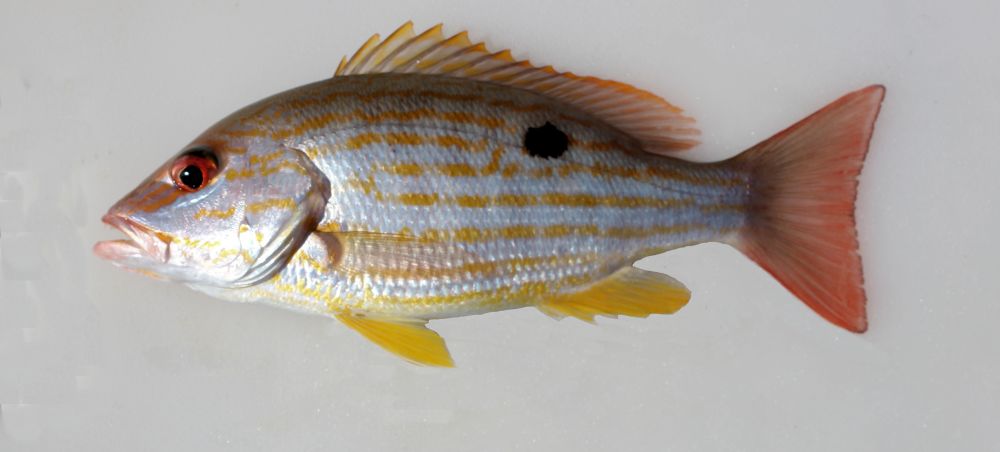
The Lane Snapper belongs to the Lutjanidae family. Lane snappers have an average length of 36 cm and a maximum length of 50 cm. Sexual maturity is achieved at lengths of 10 to 23 cm. The maximum estimated age of the snapper is 10 years. Their spawning period depends on the location. It can be fished in late spring and early summer. The snapper has a deep body and a pointed snout. It has a double dorsal fin, with a curved anal fin and short pectoral fins. The caudal fin is emarginated to slightly forked. Lane snapper has two color phases. The coloring of the deep water phase is darker and more pronounced than that of the resting phase in shallow water. The two color phases have the upper sides and the backs pink to red with a green shade. The lower sides and belly are silvered with a yellow shade. The head has 3 or 4 yellow bands from the snout to the eye, the lower jaw slightly protrudes. There are eight to ten horizontal yellow to pink stripes on their sides and three or four stripes below their anterior dorsal radius. There is a diffuse black spot under the soft part of the dorsal fin. All fins range from yellow to red.
The Lane Snapper is a famous fish you can catch in New Orleans.The Horse Eye Jack fish
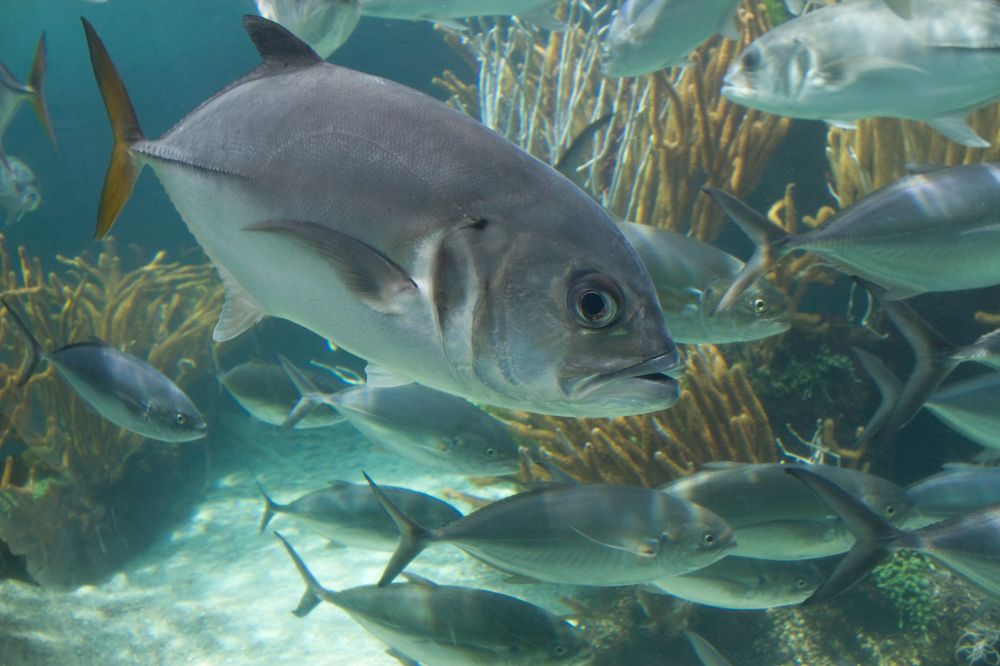
The Horse Eye Jack fish belongs to the Carangidae family. It can reach up to 100 cm for 13,33 kg. It can live for more than 18 years. It breeds from June to August. It can be fished all year. The backbones located on the body of Horse-Eye Jack are 8 to 9. The soft rays are approximately 20 - 22 located on the small body of the Horse-Eye jack. There are a few anal spines and about 17 soft anal rays. The pectoral fins are free of spots or marks and have a remarkably well constructed shape. Their bone plates are blackish or sometimes even stone grey. The caudal fin on the body of the Horse-Eye jack is yellow in color. Younger Horse-Eye jacks are brighter in color and have large, very dark stripes on the body. The shape of Horse-Eye jack is similar to that of other fish in the Carangidae family, but the main difference is the shape of their heads. The head of the horse's eye whistle is clearer and more pronounced than that of other fish in the same family. The Horse-Eye jack fins are darker in color and some of them even have black fins. The Horse-Eye fish is known as the big-eyed fish, mainly because of its prominent and prominent eyes that are located at the front and center of the fish's head.
The Horse Eye Jack fish is a famous fish you can catch in New Orleans.The Southern flounder
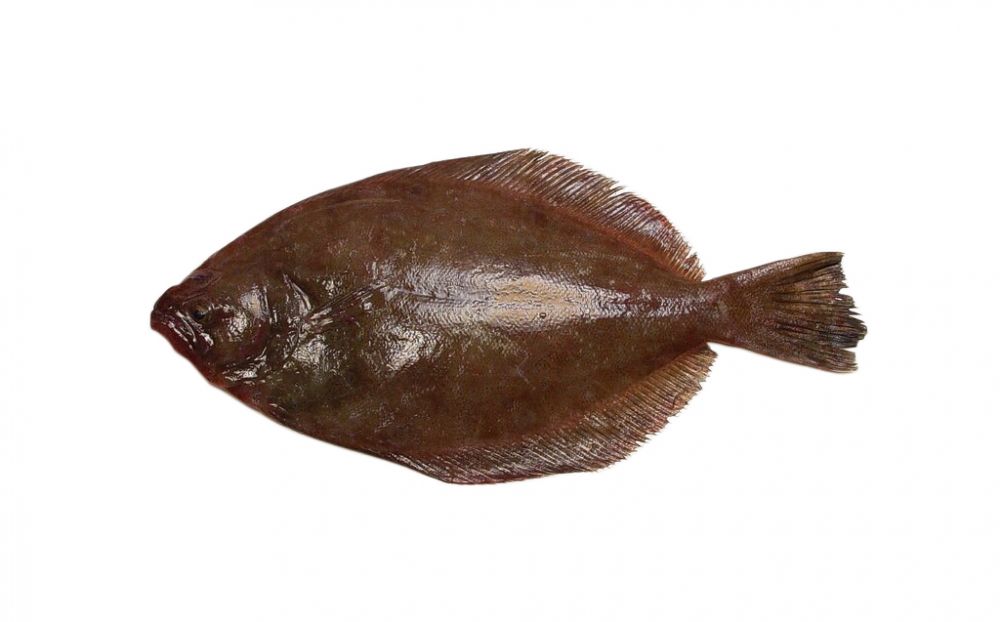
The Southern flounder belongs to the Paralichthyidae family. its average size is 30 to 35 cm for an average weight of 5 kg. it can live up to 7 years on average. it reproduces in winter. it can be fished all year round. All flatfish, which include southern flounder, are laterally compressed and spend most of their lives swimming along their bottoms. In the case of southern plaice, the left side is always the "top" side; in other species, the opposite is true.
The Southern flounder is a famous fish you can catch in New Orleans.The Weakfish
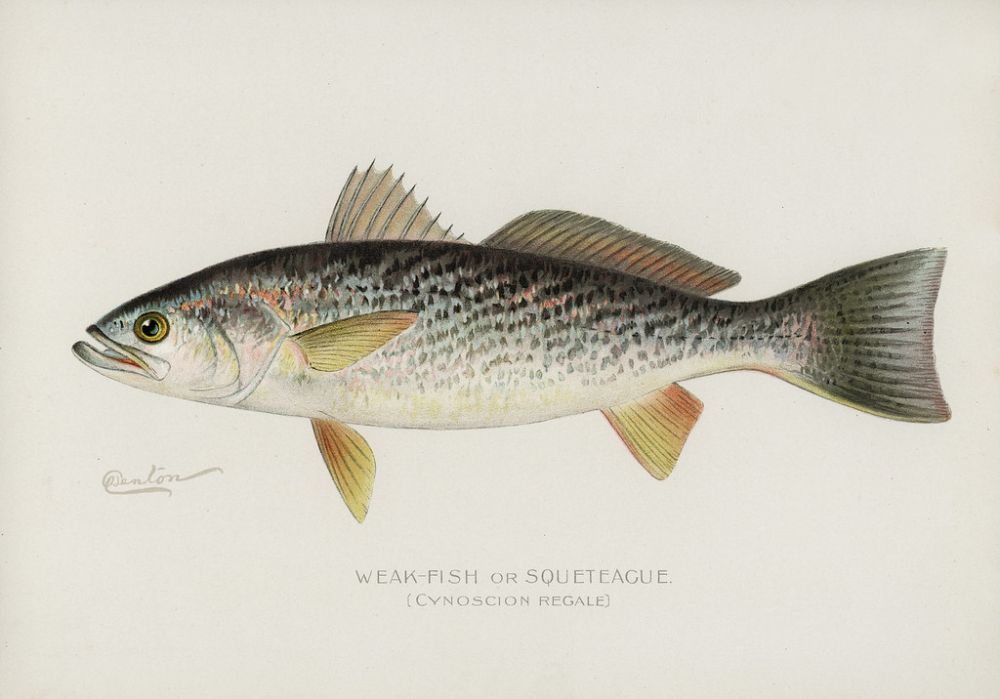
The Weakfish belongs to the Scianidae family. The weight reaches 1 m long and 9 kg of weight. It has an average life span of 12 years. It spawns from April to August. It can be fished from mid-April to the end of May, then again in August and September. Weakfish differs from other species in its genus by several meritorious characteristics: the anal fin on Weakfish has 11 or 12 soft rays, 11 to 13 gills, and the lateral line scales are between 76 and 86. In adults, the coloration of the dorsal scales is dark green and blends into the silvery underside. The coloring of the sides can range from purple, green, blue and gold spots that are usually found on the upper half of the fish. The fins are yellowish in color. The basic shape of the child's head is elongated and ends at a sharp point. The mouth is wide and oblique, with the lower jaw projecting beyond the upper jaw. The dorsal fin of fish is thorny, but the spines are flexible and usually the third or fourth spine is the longest. The anal fin is comparatively smaller than other fish in the same family as the white fish; its base ends slightly before the dorsal fin.
The Weakfish is a famous fish you can catch in New Orleans.The Silk Snapper
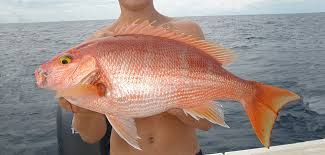
The Silk Snapper belongs to the Lutjanidae family. It can reach a maximum of 83 cm in length and 8.3 kg in weight. They can live up to 30 years. The spawning season can last all year round. The fishing season for silk snapper is from late spring to summer. Silk snappers have an elongated compressed bodies. They are generally red to pinkish red and lighter on the belly. Some fish have thin undulating yellow lines on their sides. A key to identification is the iris of their eyes, which is bright yellow. Their fins are reddish, with yellow reflections on the anal and dorsal fins. Their caudal fin has a dark border and their pectoral fins reach the anus and are pale yellow. Juveniles have black or dark red spots on their upper sides, just below the front edge of their dorsal fin. They have a large mouth equipped with one or more rows of pointed conical teeth on both jaws. Their canines are much larger on the upper jaw. They have an anchor-shaped tooth patch, with a rear extension, on the roof of their mouth and a pair of dental patches on the sides of the roof of their mouth. They have sawtooth caps. Their anal fins have pointed tips, 3 spines and 7 or 8 rays; their caudal fin is lunar; their dorsal fin is continuous with 10 or 11 spines and 13 or 14 rays. They have 16 or 17 lower branches. Their bodies are covered with rough scales and the rows of ladders on their backs are oblique above the lateral line.
The Silk Snapper is a famous fish you can catch in New Orleans.Our fishing forecast of New Orleans indicates the best time to go fishing in this city.
Our fishing forecast of New Orleans indicates the best time to go fishing in this city.
Our fishing forecast of New Orleans indicates the best time to go fishing in this city.
